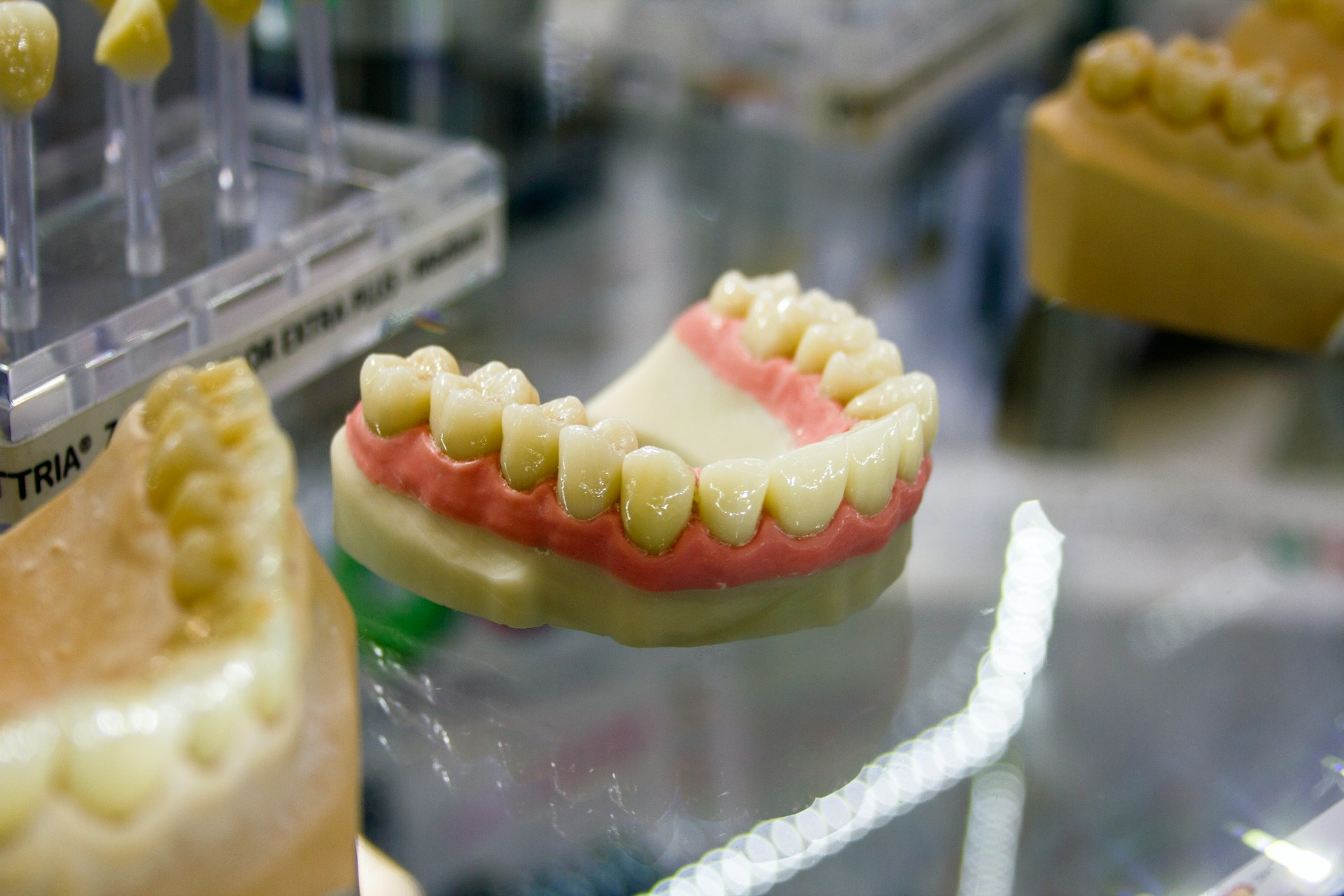If you are considering a hair transplant, understanding how to choose the best hair transplant clinic in the UK is vital for achieving a successful outcome.
It is important to understand the benefits and risks involved, as well as what factors to consider when selecting a clinic—such as accreditation, the expertise of the surgeon, and the technology used. Navigating these options wisely is essential. This guide will assist you in researching and comparing clinics, ensuring that you ask the right questions during your consultations.
Learn how to make an informed decision that aligns with your goals and ultimately leads to the results you desire.
Why Choose a Hair Transplant Clinic in the UK?

Selecting a hair transplant clinic in the UK is an important step in your hair restoration journey. The UK is renowned for housing some of the finest hair transplant clinics, known for their ethical practices and advanced surgical techniques.
Here, you will find a unique combination of experienced and qualified surgeons who utilise cutting-edge hair transplant technology, such as the follicular unit extraction (FUE) technique, to achieve natural-looking results. Moreover, clinics in the UK emphasise patient care and conduct thorough hair loss evaluations, making it a highly favourable destination for individuals seeking effective hair loss treatment.
What are the Benefits of Choosing a UK Hair Transplant Clinic?
Choosing a UK hair transplant clinic offers a variety of advantages, primarily due to access to some of the best facilities in the world, known for their high standards and exceptional patient care.
Patients typically receive a thorough evaluation of their hair loss, personalised treatment plans, and the expertise of qualified surgeons who specialise in advanced hair restoration techniques. These clinics are equipped with accredited facilities that promote a safe and hygienic environment, instilling confidence in both the hair transplant procedure and its results.
Furthermore, these clinics utilise cutting-edge technologies that enhance the effectiveness of the procedures, ensuring natural-looking outcomes. Many patients share positive testimonials, praising the level of care and professionalism they experience, highlighting how their concerns are met with compassion and understanding.
The extensive experience of the staff not only reassures individuals considering a hair restoration journey but also significantly increases the likelihood of successful results. This commitment to quality patient care often leads to transformative experiences, give the power toing individuals to regain their confidence and enjoy improved self-esteem in their everyday lives.
What are the Risks of Choosing a UK Hair Transplant Clinic?
Choosing a hair transplant clinic in the UK can bring many benefits, but it is also important to recognise the potential risks associated with the hair restoration process. Complications may arise if the procedure is not performed by qualified surgeons, and being aware of these risks will help set realistic expectations for the hair transplant and guide you through the recovery process. Factors such as the clinic’s reputation, the expertise of the surgical team, and the individual patient’s health can all influence the success rate of the procedure.
Complications can include infection, scarring, or results that appear unnatural, emphasising the necessity of thoroughly researching potential clinics and ensuring that the surgical team is experienced and holds positive reviews.
To effectively mitigate these risks, maintaining open communication with the healthcare provider during the consultation is essential. This allows for a discussion about any potential health issues that may impact recovery.
Gathering accurate information about the procedure, the techniques involved, and the strategies for aftercare not only give the power tos individuals but also creates an environment focused on safety and patient care. Ultimately, making informed decisions is crucial for enhancing the overall experience and achieving satisfactory outcomes.
What to Look for in a Hair Transplant Clinic?

When searching for the right hair transplant clinic, it is important to take into account several key factors that can significantly impact your hair restoration experience and results.
These factors include the clinic’s accreditation, the qualifications and expertise of the surgeons, and the abundance of patient reviews that share past experiences with hair transplants.
A comprehensive pre-transplant consultation is essential to ensure that your expectations are in line with what the clinic can offer and the available transplant options. Additionally, it allows you to evaluate the clinic’s overall environment and the quality of patient care practices.
1. Accreditation and Certification
Accreditation and certification serve as crucial indicators of a hair transplant clinic’s legitimacy and quality. They ensure that the facility adheres to the highest standards of patient care and safety while employing certified clinics and hair restoration specialists.
These credentials demonstrate a commitment to ethical practices and proficiency in advanced hair restoration techniques, significantly enhancing the likelihood of achieving satisfactory results.
For prospective patients, selecting an accredited clinic offers peace of mind, as these establishments undergo regular evaluations to ensure compliance with stringent medical protocols. Such clinics typically invest in cutting-edge technology and prioritize ongoing staff education, cultivating an environment where safety and patient satisfaction are at the forefront.
Furthermore, accreditation often reflects a commitment to transparency, allowing potential clients access to valuable information about the clinic’s procedures and past outcomes. By opting for a certified facility, individuals are not only protecting their health but also setting realistic expectations regarding the hair restoration process and its anticipated results.
2. Experience and Expertise of Surgeons
The experience and expertise of surgeons are critical to the success of hair restoration procedures, making the selection of a qualified surgeon one of the most significant factors when considering a hair transplant clinic.
Surgeons who are well-trained in various surgical techniques, particularly the popular Follicular Unit Extraction (FUE) method, can greatly improve hair density and achieve more natural-looking results, enhancing the overall confidence of patients throughout their hair transplant journey.
Many patients often express that prioritising a skilled surgeon has led to remarkable outcomes in their procedures. Testimonials frequently highlight how these well-trained professionals not only perform modern techniques with precision but also offer personalised care, addressing individual concerns at every step of the process.
For example, one satisfied patient recounted how their surgeon’s meticulous attention to detail and mastery of the procedure resulted in a full, natural hairline that far exceeded their expectations. Such endorsements emphasise the importance of choosing a qualified specialist who remains updated on advancements in the field, ensuring that patients receive optimal care and aesthetic results.
3. Technology and Techniques Used
When selecting a hair transplant clinic, it is essential to consider the technology and techniques they employ. Recent advancements in hair transplant technology have introduced minimally invasive procedures, such as the FUE technique, which offer effective solutions for hair loss treatment.
Clinics that adopt the latest technology and surgical methods not only enhance the overall patient experience but also improve the chances of achieving successful hair transplant outcomes.
Innovations like robotic-assisted systems and advanced imaging techniques facilitate more precise graft placement and contribute to shorter recovery times. By choosing facilities that utilise cutting-edge methods, individuals seeking treatment can benefit from a significantly higher rate of graft survival and more natural-looking results.
Moreover, modern practices often incorporate sophisticated software for patient mapping and personalised planning, ensuring that each case receives a tailored approach. Such thorough assessments can greatly enhance the satisfaction of those undergoing hair restoration procedures, underscoring the importance of selecting a clinic that prioritises technological excellence.
4. Before and After Photos of Previous Patients
One of the most effective ways to assess the quality of a hair transplant clinic is to review the before and after photos of previous patients. These images serve as tangible evidence of the clinic’s expertise and the potential outcomes one can anticipate from a hair transplant. Additionally, patient reviews and testimonials provide valuable insights into the experiences of others, assisting prospective patients in making informed decisions.
By examining actual patient results, individuals can observe the quality of work firsthand. This can help alleviate concerns and foster confidence in the clinic’s practices. Testimonials often reveal critical information about the overall care provided, including aspects such as staff professionalism, the clinic’s atmosphere, and post-procedure support.
Prospective patients should focus not only on numerical success rates but also on qualitative feedback that emphasizes individual stories and satisfaction levels. When taken together, these elements can create a comprehensive picture of a clinic’s reputation, helping potential clients make choices that align with their expectations and needs.
5. Cost and Payment Options
Understanding the costs associated with a hair transplant and the payment options available is vital for prospective patients, as these costs can vary significantly among clinics. Various factors influence these costs, including the techniques used and the complexity of the hair restoration procedure.
Many clinics provide financing options and insurance coverage to help alleviate the financial burden, making it essential to discuss these aspects during your hair transplant consultation.
Other elements affecting the overall expense include the clinic’s geographical location, the surgeon’s expertise, and the number of grafts required for the best results. Therefore, it is important for individuals to conduct thorough research, comparing the credentials and success rates of different providers while also considering any additional costs related to post-operative care.
By exploring financing options, such as payment plans or medical loans, patients can make informed decisions that align with their budgets, ensuring they achieve their desired outcomes without jeopardising their financial stability.
6. Patient Reviews and Testimonials
eading patient reviews and testimonials is an excellent way to assess the overall satisfaction of individuals who have undergone hair restoration procedures at various clinics. These firsthand accounts provide valuable insights into the hair transplant experience and the quality of care offered, often dispelling common myths about hair transplants that may deter prospective patients.
By exploring both positive and negative feedback, individuals can gain a balanced perspective on what to expect. This research is essential, as it not only helps potential clients understand the procedures involved but also highlights the expertise and attentiveness of the medical staff.
Authentic insights from past patients often reveal important details about post-operative care, recovery times, and overall outcomes that brochures and advertisements may not address. By addressing myths about hair transplants through real stories, individuals can make more informed decisions, ensuring they feel confident and secure in their choice.
How to Research and Compare Hair Transplant Clinics in the UK?

Researching and comparing hair transplant clinics in the UK requires a systematic approach. This involves conducting thorough evaluations of hair loss, consulting with multiple local clinics, and assessing their accreditation and patient reviews.
By gathering information from various sources, prospective patients can make informed decisions that align with their hair restoration goals, ensuring they select a clinic that meets their specific needs.
1. Online Research
Carrying out online research is an essential first step when comparing hair transplant clinics. This process allows prospective patients to read reviews and explore various online platforms that highlight the reputations of different clinics. Such comprehensive research can provide valuable insights into the experiences of past patients, helping to create a clearer understanding of what to expect.
By using popular review sites, potential clients can gather important feedback about various clinics, often revealing the strengths and weaknesses of each facility. Social media platforms also play a significant role in this research process, enabling individuals to engage with real-time patient stories and updates. This interactive approach not only enhances the understanding of the services provided but also fosters a sense of community among those considering hair restoration options.
This careful examination give the power tos individuals to make informed decisions, ultimately leading to a more satisfying experience throughout their hair transplant journey.
2. Consultations and Visits
Scheduling consultations and visits to potential hair transplant clinics is a crucial step in the research process. These interactions provide an opportunity to meet with qualified surgeons and discuss personalised treatment plans based on individual evaluations of hair loss.
During these consultations, patients can pose relevant questions and assess the professionalism of the clinic’s environment and staff.
In-person meetings allow prospective clients to evaluate the clinic’s credibility and the expertise of the medical team. Observing how the staff interacts with patients can serve as a reflection of their commitment to providing care and support throughout the treatment journey.
This firsthand experience not only builds trust but also helps individuals feel more confident in the decisions they need to make regarding their hair restoration. Ultimately, recognising the importance of personalised treatment is essential, as it can lead to better outcomes and greater satisfaction with the results.
3. Ask for Recommendations
Seeking recommendations from friends, family, or online communities can provide valuable insights into hair transplant experiences. These insights can help individuals identify reputable clinics with a proven track record of successful hair restoration outcomes. Engaging with patient testimonials adds another layer of authenticity when evaluating potential clinics.
When individuals share their journeys, they not only highlight the quality of care provided but also reveal the nuances of the process—from initial consultations to post-operative care. By examining these firsthand accounts, prospective patients can gain a clearer understanding of what to expect, which can alleviate concerns and foster a sense of community.
This collective wisdom plays a crucial role in distinguishing between clinics and helps build trust and confidence in the decision-making process. Ultimately, it ensures that individuals choose a facility that aligns with their personal health needs and aesthetic goals.
4. Consider Location and Accessibility
Considering the location and accessibility of hair transplant clinics is a crucial part of your research, as it can significantly influence your overall experience and convenience throughout the hair restoration journey. Local clinics often provide the benefit of easier travel for consultations, follow-up appointments, and post-operative care, helping patients stay engaged with their treatment plans.
When assessing potential options, it is important to contemplate the distance from home, available transport methods, and the time commitment required to attend appointments. For example, clinics located in urban centres may offer better public transport options but could present challenges with traffic congestion. On the other hand, a suburban clinic might provide a more relaxed atmosphere and easier parking, albeit with longer travel times.
Patients should carefully evaluate these logistical factors to identify a clinic that not only meets their aesthetic requirements but also aligns with their lifestyle and schedule.
What Questions to Ask During a Consultation at a Hair Transplant Clinic?

In a hair transplant consultation, it is essential to ask the right questions to be adequately prepared for the procedure and to set realistic expectations regarding the outcomes.
It is advisable to inquire about the clinic’s success rates, the surgeon’s level of experience, and the post-operative care that will be available after the hair transplant.
Engaging in this dialogue fosters trust and enables patients to make informed decisions about their hair restoration journey.
1. What is the Success Rate of Your Procedures?
Inquiring about the success rate of hair transplant procedures performed at the clinic is crucial, as this metric directly reflects the effectiveness of their techniques and the expertise of their qualified surgeons. Understanding patient outcomes provides valuable insight into the clinic’s reputation and the likelihood of achieving satisfactory results from your hair restoration procedure.
Being informed give the power tos patients to make thoughtful decisions regarding their treatment options. When evaluating the success of a hair transplant, it is important to consider what constitutes success in this context. Factors such as hair growth density, natural appearance, and overall patient satisfaction significantly influence the determination of a procedure’s success.
Patients should feel encouraged to engage in open discussions with the clinic, asking specific questions about average hair growth rates over time and what tangible results they can expect. This dialogue not only clarifies potential outcomes but also helps to set realistic expectations for the journey ahead.
2. What is the Estimated Cost and Recovery Time?
Inquiring about the estimated cost of a hair transplant and the anticipated recovery time is essential for effective budgeting and planning. Hair transplant costs can vary considerably depending on the techniques employed and the location of the clinic.
Gaining insight into the recovery process helps set realistic expectations for post-operative care and assists in planning for time away from work or other commitments.
Beyond the initial financial investment, it is important for potential patients to consider any follow-up treatments and medications that may impact the overall expenses. Some clinics may provide financing options, which can facilitate more manageable payment plans.
Having a clear understanding of the recovery timeline enables individuals to make informed decisions regarding their personal schedules, ensuring they allocate sufficient time for healing. This understanding is vital not only for physical recovery but also for emotional well-being, allowing one to feel more prepared and less anxious about the journey ahead.
3. What are the Potential Risks and Complications?
It is essential to discuss the potential risks and complications associated with the hair transplant procedure during your consultation. This ensures that you have realistic expectations and are prepared for any uncertainties that may arise.
Qualified surgeons should be transparent about possible adverse effects and the measures in place to minimise them, providing a comprehensive understanding of the procedure.
By shedding light on both common and rare complications, individuals can feel give the power toed to make informed decisions about their treatment journey. Patients are encouraged to express their concerns and ask thoughtful questions, fostering a collaborative environment where both parties can directly address uncertainties.
Establishing this transparent dialogue allows individuals to gain confidence in their decision-making process and better align their goals with the anticipated outcomes. Understanding what to expect helps alleviate anxiety, ultimately fostering a sense of security and trust throughout the entire procedure.
4. Can You Provide Before and After Photos of Similar Cases?
Requesting before and after photos of similar cases during your consultation can greatly assist in visualising the potential outcomes of your hair transplant. These images provide tangible evidence of the clinic’s capabilities.
Plus the photos, reviews and testimonials from previous patients can further enhance your decision-making process and help set realistic expectations for your procedure.
By carefully examining these visual examples, you can gain valuable insights into the effectiveness of various techniques and the results achieved with past clients. It is important to consider not only the photos but also the feedback from former patients, who share their experiences regarding the care they received and their satisfaction with the outcomes.
This combination of visual evidence and authentic reviews offers a more comprehensive understanding of what to expect, allowing individuals to approach their own hair restoration journey with increased confidence and clarity.
5. What is Your Post-Procedure Care Plan?
Understanding the post-procedure care plan is essential for a smooth recovery following a hair transplant, as proper care can significantly impact the overall success of the procedure.
During your hair transplant consultation, it is advisable to ask about the specific instructions provided by the clinic regarding post-operative care, follow-up appointments, and any recommended products or treatments that can aid in optimal healing.
Meticulously following these instructions is crucial, as neglecting them can lead to complications that may compromise the aesthetic results. The recovery period demands both patience and diligence, as it involves not only physical healing but also the appropriate nurturing of the newly transplanted follicles.
Patients should feel encouraged to discuss any uncertainties they may have regarding their recovery, whether it pertains to managing discomfort, understanding hair growth timelines, or recognising signs that may require medical attention.
Engaging with the healthcare team can provide clarity and confidence throughout the healing process, ultimately enhancing the results of the hair restoration journey.
Frequently Asked Questions
How to choose the best hair transplant clinic in the UK?
When choosing a hair transplant clinic in the UK, you should consider factors such as the clinic’s reputation, experience, qualifications of the surgeons, success rate, before and after photos, and the technology and techniques used.
Are there any specific credentials I should look for in a hair transplant clinic?
Yes, you should look for clinics that have qualified and experienced surgeons who are members of reputable organisations such as the International Society of Hair Restoration Surgery (ISHRS) and the British Association of Hair Restoration Surgery (BAHRS).
How can I gauge the success rate of a hair transplant clinic?
You can ask the clinic for their success rate and also look at before and after photos of their previous patients. Additionally, you can read reviews and testimonials from their previous clients to get an idea of their success rate.
What hair transplant techniques should I look for in a clinic?
The two main techniques used in hair transplants are follicular unit transplantation (FUT) and follicular unit extraction (FUE). Look for clinics that offer both options and have experience in performing them.
Are there any red flags I should watch out for when choosing a hair transplant clinic?
Yes, be cautious of clinics that offer extremely low prices or deals that seem too good to be true. Also, make sure to research the clinic’s reviews and qualifications of the surgeons before making a decision.
Is it important to have a consultation before choosing a hair transplant clinic?
Yes, a consultation is crucial as it allows you to discuss your concerns and expectations with the surgeon and get an accurate assessment of your hair loss. It also gives you the opportunity to ask any questions and get a feel for the clinic and its staff.







